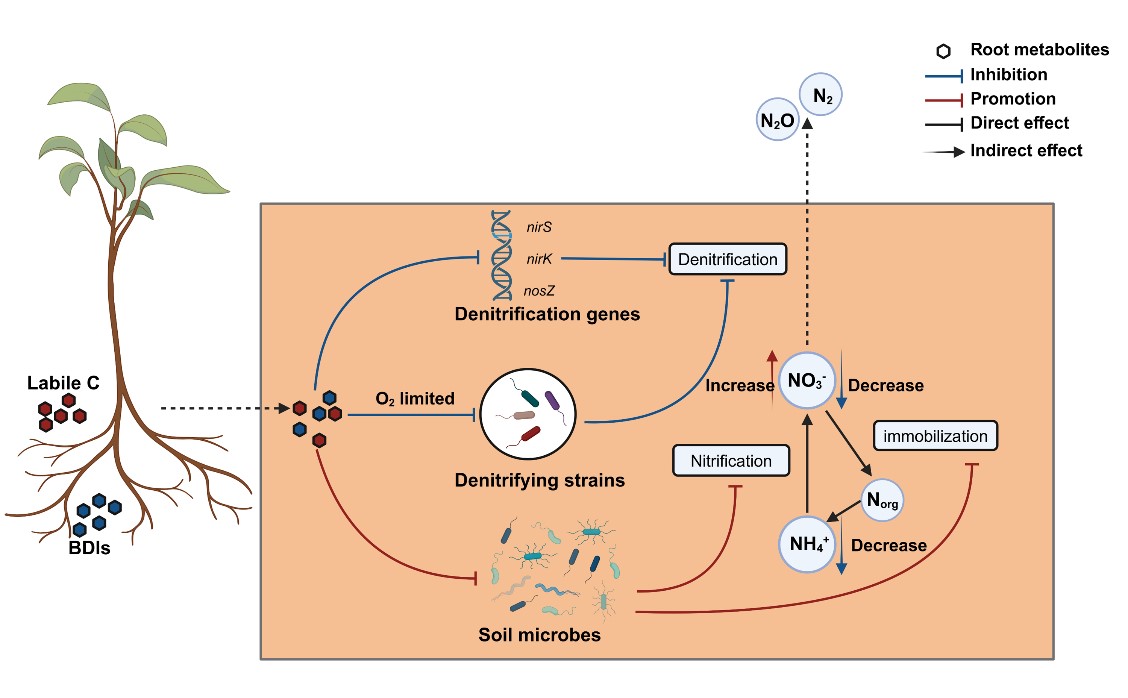
Newsroom
A new study led by the Institute of Applied Ecology (IAE) of the Chinese Academy of Sciences has revealed that diverse plant species naturally inhibit soil nitrogen loss and nitrous oxide (N₂O) emissions through specialized root metabolites—a mechanism now identified as a potential ecological adaptation across plant families.
Published in Soil Biology and Biochemistry, the study overturns long-held assumptions that root secretions universally promote soil denitrification, a microbial process that converts soil nitrates (NO₃⁻) into gaseous nitrogen compounds (e.g., N₂O), depleting soil fertility and accelerating climate change.
The research team, collaborating with Bangor University (UK) and other institutions, screened root metabolites from 100 plant species using a novel hydroponic collection and soil-incubation system. They discovered that 21 species actively suppressed denitrification—20 of which were previously undocumented for this trait, termed Biological Denitrification Inhibition (BDI). This phenomenon, wherein plants secrete secondary metabolites to reduce microbial denitrification, enhances their own nitrogen uptake efficiency while mitigating greenhouse gas emissions.
Long-term experiments confirmed that BDI metabolites significantly lowered the abundance of three critical denitrification functional genes: nirK and nirS, which encode enzymes reducing nitrite to nitric oxide, and nosZ, which is responsible for converting N₂O to inert N₂ gas. Non-targeted metabolomics further identified flavonoids and terpenoids—compounds enriched in Acorus spp. (calamus), a plant with potent BDI effects—as key inhibitors.
These findings suggest that BDI may be a widespread evolutionary strategy among plants to retain nitrogen in nutrient-scarce soils. This challenges the paradigm that root exudates primarily fuel denitrification by providing labile carbon to soil microbes.
Lead author LI Jincheng, a joint Ph.D. student at IAE and Bangor University, highlighted that BDI plants "exploit no more," redirecting nitrogen toward their growth rather than microbial loss. Harnessing these metabolites could revolutionize nitrogen management—reducing fertilizer dependency while curbing N₂O emissions.
This work provides the first comprehensive evidence of BDI's broad taxonomic occurrence and underlying mechanisms, paving the way for the development of plant-based solutions to enhance nitrogen use efficiency in crops.

Proposed mechanism of BDI-active root metabolites suppressing soil denitrification. Metabolites such as flavonoids inhibit microbial gene expression (nirK, nirS, nosZ), reducing nitrate loss and N₂O emissions (Image by LI Jincheng)
